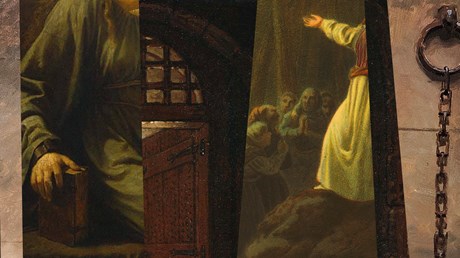What Scripture tells us about the story of this ‘outstanding’ Jewish woman in chains.

About a decade ago, when my family was on vacation in Rome, Italy, we visited the Basilica di San Pietro in Vincoli (“Saint Peter in chains”)—where tourists and Christian pilgrims come to see Michelangelo’s famous statue of Moses and a set of prison chains that tradition claims belonged to the apostle Simon Peter during his imprisonment (Acts 12:3–19).
But it wasn’t just male apostles who were privileged with the unwanted gift of shackles. Paul tells us in Romans 16:7 that Andronicus and his wife, Junia, were both imprisoned for the sake of Jesus: “Greet Andronicus and Junia, my fellow Jews who have been in prison with me. They are outstanding among the apostles, and they were in Christ before I was.”
Two elements of this verse have been the subject of deep scrutiny and vigorous debate: Was Junia a woman? And was she really an “apostle”?
With respect to the first question, there was a span of several hundred years where Bible translations treated this person as a man (with the name Junias—notice the s), mostly because it was unthinkable that Paul could call a woman an “apostle.” But biblical scholars have rediscovered her female identity in the last few decades for several reasons, including the fact that Junia was a popular female name in the Roman period, while the name Junias is not attested at all.
And in regard to the second question, Paul acknowledges the married couple were Jewish like him and followed Jesus before he did. Since we know Paul came to believe in Jesus not long after the Resurrection (let’s say, around A.D. 33), Andronicus and Junia were among the “first generation” of Christian apostolic leaders.
In fact, most ...
from Christianity Today Magazine
Umn ministry


.gif)

.gif)
.gif)
